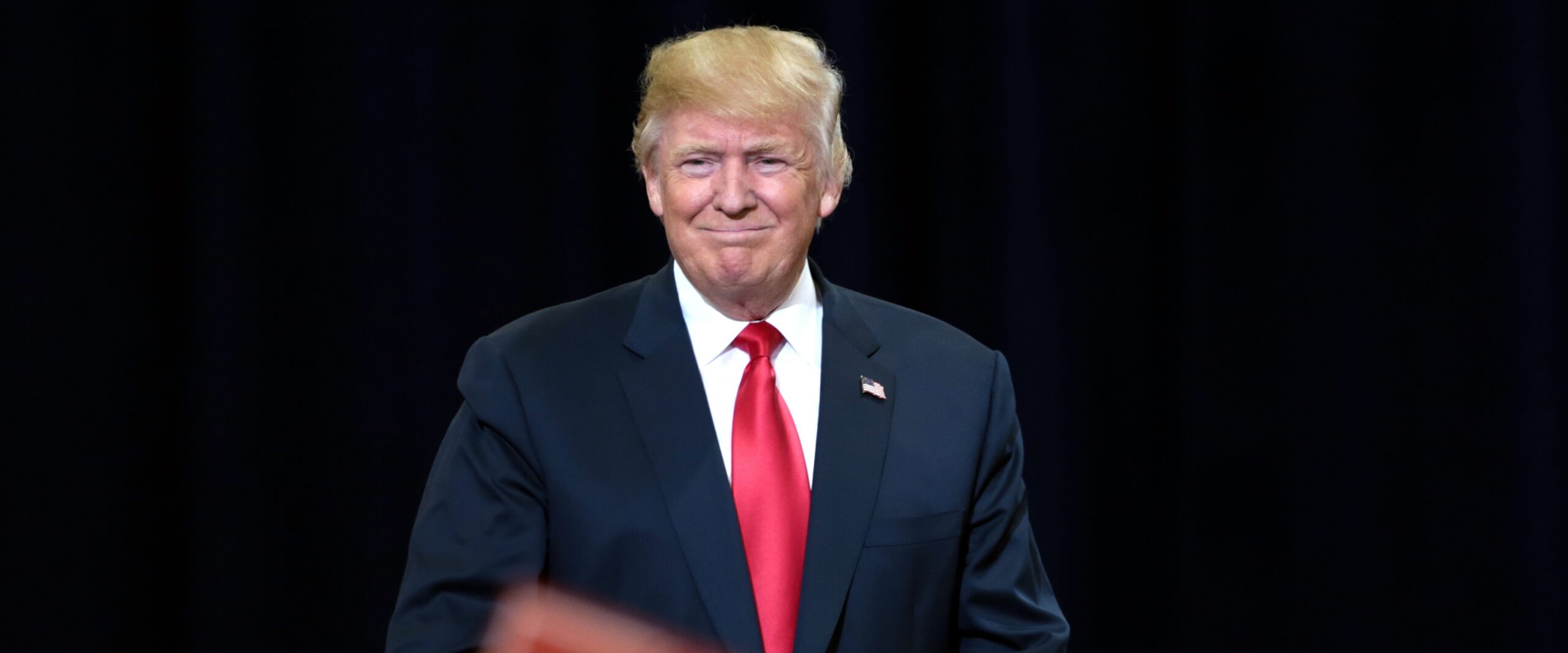
With Donald Trump set to assume the US presidency in 2025, questions have cropped up regarding the future of his social media platform Truth Social, and its parent company Trump Media & Technology Group (DJT).
Trump’s latest move of transferring his ownership stake to a revocable trust which makes him an indirect owner of the stock, but gives his son Donald Trump Jr. the sole voting power over the shares has also raised concerns about potential conflicts of interest.
Besides, investors and analysts also seem to grapple with valuation challenges and have questions about the company’s growth strategies.
Trump’s trust arrangement raises ethical questions
Trump’s indirect ownership of TMTG—valued at over $4.2 billion—has drawn criticism for lacking transparency.
While he transferred his stake to a trust in December 2024, the arrangement allows Donald Jr. to maintain sole voting power, raising concerns over potential conflicts of interest.
“This is not a blind trust with an independent trustee, where people can have confidence that the conflicts of interest are in fact removed,” said Dennis Kelleher, CEO of Better Markets in a Barron’s report.
President Trump having his son as the trustee looks more like a blind trust with one eye open.
Though US presidents are not legally obligated to adhere to conflict-of-interest laws, past officeholders have typically placed assets into fully independent blind trusts to avoid perceptions of impropriety.
Trump’s decision to forgo such measures has fuelled skepticism over whether the public and private roles can remain distinct.
Valuation concerns: Is Truth Social worth its price tag?
TMTG’s current valuation of $7.8 billion is under intense scrutiny given its limited financial performance.
The company reported a modest $1 million in revenue and a $19.2 million net loss for Q3 2024, leaving many to question the stock’s fundamentals.
Unlike most publicly traded companies, TMTG has no brokerage coverage, making its financial outlook speculative at best.
Additionally, institutional investors such as Vanguard and BlackRock hold small stakes in the company, primarily through index funds, which may not indicate confidence in its long-term prospects.
When compared to social media giants like Meta Platforms and ByteDance, TMTG’s position appears tenuous.
Meta’s market capitalization stands at $1.5 trillion, driven by robust revenue and engagement metrics.
Similarly, ByteDance, the owner of TikTok, is estimated to be worth $300 billion.
TMTG, by contrast, seems to derive its valuation largely from Trump’s personal brand rather than operational achievements.
DJT’s growth strategy: streaming services and crypto ventures
Amid these challenges, TMTG has outlined ambitious growth plans that extend beyond Truth Social.
The company’s Truth+ streaming video service is gaining traction, with availability on platforms like iOS and Android.
TMTG is also exploring opportunities in cryptocurrency and fintech to diversify its revenue streams.
Reports have surfaced that TMTG is considering acquiring Bakkt, a publicly traded crypto platform with a market capitalization of around $200 million.
Such a move would be financially feasible, given TMTG’s $673 million in cash reserves and debt-free balance sheet.
Devin Nunes, CEO of TMTG, has emphasized the company’s commitment to growth through potential mergers and acquisitions.
“We continue to explore additional possibilities for growth such as potential mergers and acquisitions…including in the realm of fintech,” he said in a recent earnings release.
While these strategies could provide new revenue streams, they also come with significant risks.
Earlier in November, the company filed a trademark for its potential cryptocurrency trading and payment platform, “TruthFi.”
The cryptocurrency market is notoriously volatile, and a misstep in this space could further erode investor confidence.
Retail investor enthusiasm wanes
Retail investors, once a key driver of DJT stock’s performance, appear to be losing interest.
Following Trump’s election victory in November, trading volumes for the stock have declined steadily.
“Retail investor demand for DJT has fallen since the election,” said JJ Kinahan, CEO of IG North America.
He told Barron’s that many Trump supporters who bought shares before the election may have seen their investment as a form of political expression rather than a financial decision.
Interactive Brokers Chief Strategist Steve Sosnick echoed this sentiment, observing that DJT’s popularity among traders has waned since peaking on election day.
“We’re not necessarily seeing selling in DJT, but there is not an influx of new buyers either,” Sosnick explained.
The lack of retail momentum is evident in DJT’s recent stock performance.
While shares have rebounded slightly since early November, they remain 30% below their October peak of $55 and are down over 50% from their March high of $80.
Possible catalysts: opportunities and risks
Despite the challenges, DJT stock retains the potential for sudden spikes, driven by unexpected developments.
A buyout offer, partnership with a fintech firm, or the launch of a new product line could reignite investor interest.
However, such catalysts remain speculative, and the risks associated with insider sales or regulatory scrutiny could temper optimism.
Insider ownership poses an additional layer of uncertainty. Several key figures associated with Trump’s administration, including Attorney General appointee Pam Bondi, own shares in TMTG.
If insiders begin offloading their stakes, it could trigger a sharp decline in stock prices.
The post What Donald Trump’s presidency means for DJT’s future: key insights for investors appeared first on Invezz
